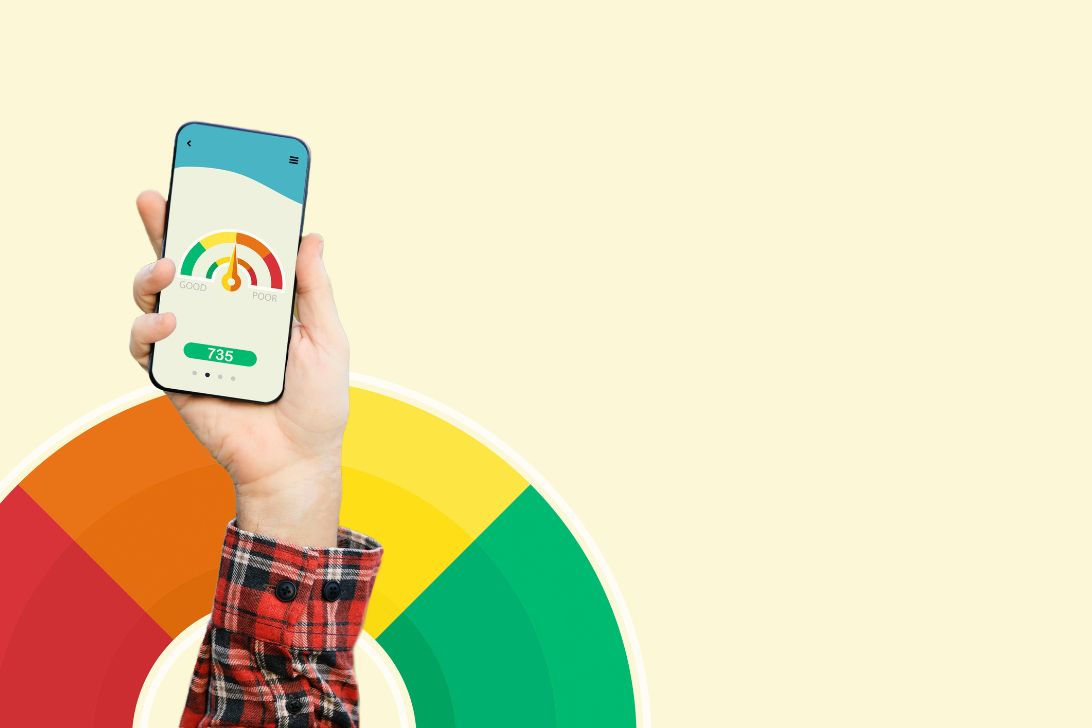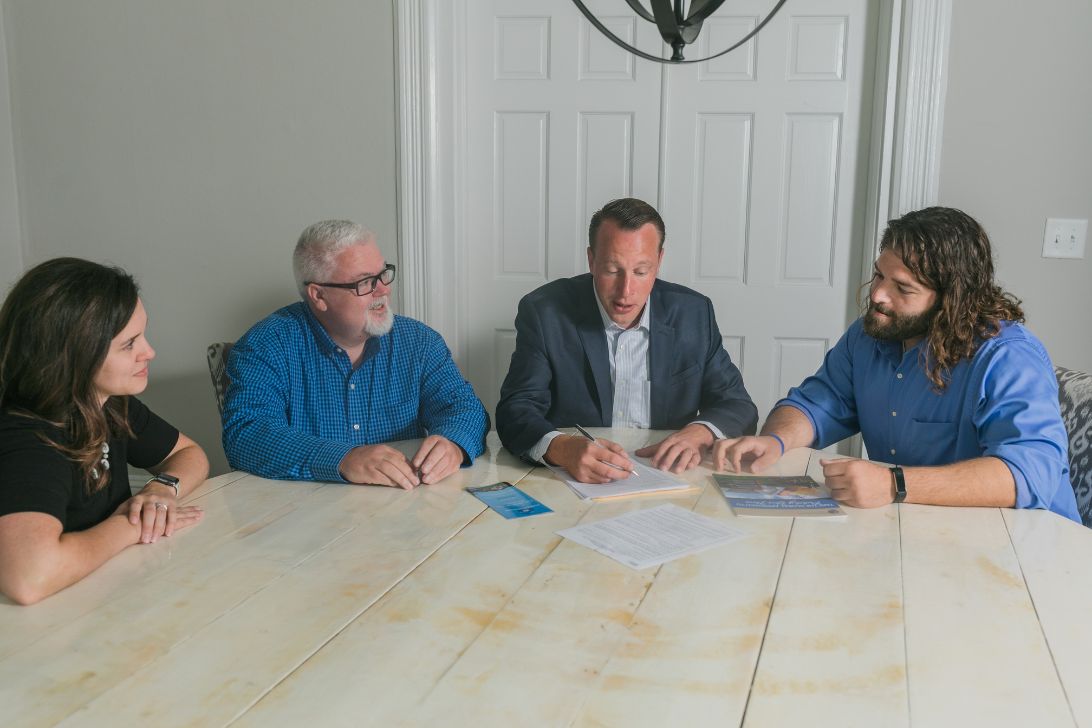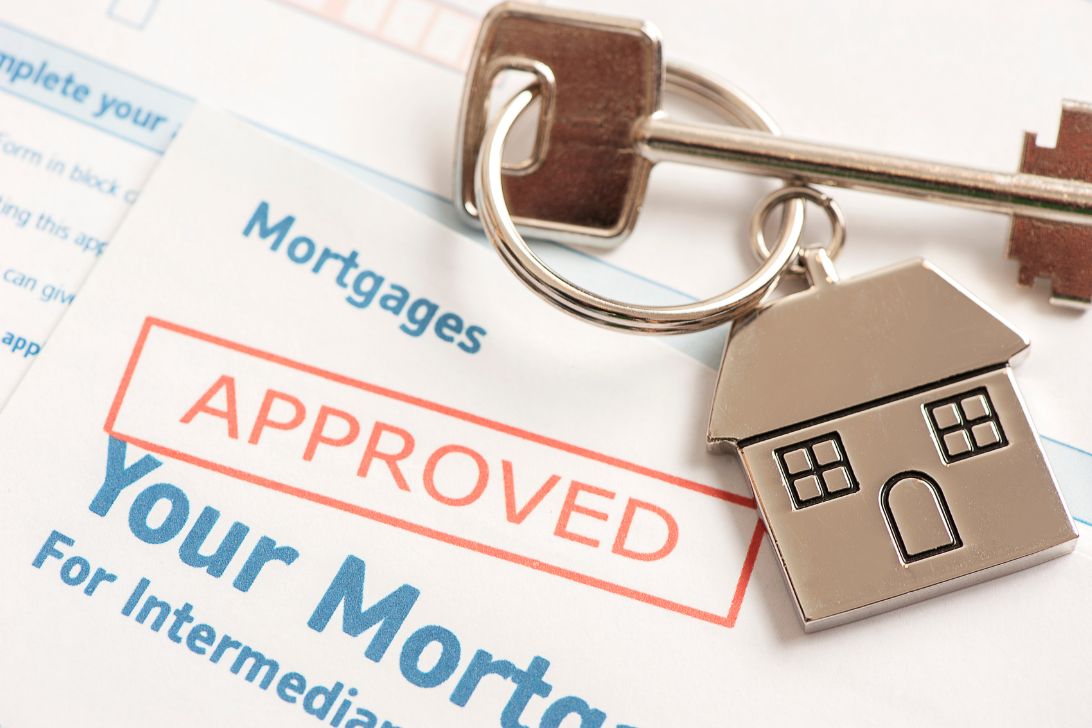Homebuying Process 2025: A Step-by-Step Guide
The steps to buying a house are not too difficult or scary. Yes, it is a big purchase. But, throughout the house buying process you will see that you have the guidance of professionals all around you. Here, I will break this up into steps so it is easier to understand. Upon reading this post you will be ready to start searching for homes for sale.
Things to Consider When Buying a New House
Unfortunately, there is no flashing red light telling you when is the right time to purchase a house. Instead, buying a home, existing or newly built, usually happens due to a major life event.
Is It a Good Time to Buy a House?
If your life is stable and your economic prospects look good you should consider buying a home. Trying to time the market for the perfect time to buy a home is a fool’s errand. The U.S. real estate market is actually really efficient. It is rare to fall into a deep buyer’s market. On the other hand, consider these economic benefits of buying a home:
- Build equity in an appreciating asset
- Fixed housing costs because the mortgage won’t change
- Opportunity to own the home, or asset, while its value increases
Should I Buy a House?
There are a few guideposts which should indicate to you whether or not you should buy a home. Prospective homebuyers should ask themselves these questions and think about the present to three years in the future when answering each:
- Are you able to pick a location where you will be happy?
- Do you think your employment and employment prospects are stable or improving?
- Is your overall life stable regarding relationships, health, and other areas of your life?
If you got three yeses, well then, you probably should buy a house.
When Should I Buy a House?
You should buy a home once you hit a few milestones. First, stability. If you have economic stability and overall stability in your life seriously consider purchasing a home. Second, if you are unhappy with your current housing making a change and buying a home could be a good idea. Lastly, I encourage homebuyers to think about being in a place for at least three years. If you confident you can likely stay in the same place for three years you’re likely ready to buy a home.
14 Steps to Buy A House in Indiana
Here, you will find the steps to buying a house. This breaks down the entire process of buying a house step-by-step.
1. Decide What You Need and What You Want
The first steps to buying a house include describing the target home. This is done based on your needs and wants. First, focus on the needs. Housing needs are likely to include:
- The home’s location
- Home size
- Number of bedrooms
- Number of bathrooms
- Anything else you absolutely 100% can not do without
- Home type (i.e., house, townhome, condo, half-duplex)
Next comes the wants. These are the things you do not need but might want. For many people this would include:
- Features in the home like a fireplace, main bedroom bathroom, pool, or a garage
- Home age
- Home design like a ranch, two-story, or bungalow
- Quality and age of finishes
- Neighborhood and nearby amenities like restaurants, parks, or shopping
2. Check Your Credit Score

Another of the early steps to buy a house is having a qualifiable credit score. You will need a qualifying credit score in order to qualify for a mortgage. If you are buying the home with cash you can skip this step.
The sources you use to check your credit score matter. There are many free resources to check your credit score. However, many of these do not provide the most accurate number. Instead, consider contacting the credit bureaus directly and ask for your credit score. In the U.S. these are Experian, TransUnion, and Equifax. Each is required to provide you with your credit score and report once per year at no cost.
A qualifying credit score for a mortgage varies based on the mortgage type. Though there are some exceptions this is generally the required credit score for each mortgage type:
- Conventional Mortgage: 650+
- Insured Conventional Mortgage: 650+
- FHA Mortgage: 620+
- USDA Mortgage: 640+
- VA Mortgage: Typically, 620+. There is no required minimum credit score for a VA mortgage. Instead, the entirety of the application is considered. However, the likelihood of getting approved drops a lot with a credit score below 620.
You will have three credit scores. A mortgage lender will use the middle score as your score. If you are buying the home with someone else like a spouse or partner the lender will consider the lower middle score of the two applicant borrowers.
3. Calculate How Much You Can Afford on a House
One of the most important home buying steps is setting a budget. Your budget to buy a home will have two parts. The first is the maximum amount you can spend out of pocket to get the home bought. This amount will be spent on the down payment and closing costs. The second amount to determine is the maximum monthly house payment that is comfortable to you.
When determining your house payment do not forget to consider all of the costs which roll up to a house payment. Your monthly house payment calculation should include:
- Principal and interest repayment – This is the repayment of the borrowed amount and the interest on that borrowed amount which is due each month.
- Property taxes – Taxes are a part of life, and you must pay them. Each home has a different amount for property taxes.
- Homeowner’s insurance – Both you and the mortgage provider are going to want to insure the home against disasters. So, don’t forget to budget in a cost for homeowner’s insurance.
- Private mortgage insurance – also known as PMI, private mortgage insurance is an insurance product created to help people purchase a home with less than a 20% down payment. Rates for this vary based on your loan type. Your lender can help you understand the PMI costs if it applies to you.
4. Save for a Down Payment and Closing Costs
One of the steps on buying a house is having the funds to close. Most loan types will require a down payment. Also, every home purchase has closing costs. You need to develop a plan for saving up these amounts. I can help you by providing you with some guidance.
How Much Down Payment Do I Need to Buy a House?
The down payment amount depends on the loan type. Here are the typical down payment amounts by mortgage type based on the home’s purchase price:
- Conventional Mortgage: 20%
- Insured Conventional Mortgage: 5%
- FHA Mortgage: 3.5%
- USDA Mortgage: 0%
- VA Mortgage: 0%
There are some down-payment assistance programs offered by some lender for conventional and insured conventional mortgages with minimum down payments as low as 3%. Speak with your lender about those products.
Closing costs is the other expense. Homebuyer should anticipate closing costs of about 1% to 3% of the home’s purchase price. Lower cost homes will be closer to the high end and more expensive homes will be closer to the low end. Yes, that sounds backwards, but it isn’t.
5. Decide Which Type of Mortgage Is Right for You

The next step in the process of buying a house is to decide what mortgage type you want to use. There are pros and cons to each type of mortgage. Here, I will take you through the basics of each mortgage to help you choose which is best for you.
Conventional Loans
Conventional mortgages require the highest credit score with a minimum of 650. A conventional mortgage also requires a 20% down payment. The same product with a lesser down payment is an insured conventional mortgage. You can get an insured conventional mortgage with a 5% down payment and include a private mortgage insurance (PMI) product. PMI on insured conventional mortgages is cheaper than you’d think. Also, with an insured conventional mortgage PMI will fall off once you have a 20% equity position in the home. This can occur by a) paying the loan down or b) the home increasing in value and refinancing based on the current loan amount.
FHA Loans
FHA loans are great if you have a lower credit score and less money to put down. The credit score requirement is only 620 and only a 3.5% down payment is needed to get an FHA loan. Homebuyers using an FHA loan will have to pay for mortgage insurance premiums (MIP). MIP on FHA loans is expensive because everyone pays the same which includes 1.75% of the home purchase price at closing. This upfront premium can be rolled into the loan, though. The monthly cost is 0.85% of the loan amount divided by 12. Also, the MIP never falls off unless refinance the home into a conventional loan product.
VA Loans
VA loans are a benefit earned by qualifying veterans and surviving spouses of veterans. These veterans are rewarded this great benefit for their service to the country. VA loans do not have a down payment and there is no private mortgage insurance. There is the VA loan funding fee which is high at 1.4% to 3.6% of the purchase price. This can be rolled into the home loan, though. Also, there are some exemptions for the VA funding fee.
USDA Loans
USDA loans help lower income people purchase homes in rural areas. The income limits are actually quite high allowing many people to qualify. USDA loans have a 0% down payment. USDA loans have a lifetime funding fee expense, though. This fee is an upfront fee of 1% of the home’s purchase price due at closing. This fee can be rolled into the mortgage, though. Secondly, is the annual fee which is added to your payment. The annual fee is 0.35% of the loan amount divided by 12. Many areas in Indiana will qualify for a USDA home loan.
6. Get Pre-Approved For A Mortgage
Skip this step if you are paying cash for the home.
If you need a mortgage to buy a house, you should get pre-approved. A pre-approval letter with your offer has become nearly a necessity in Indiana home buying. Why go look at homes and just tease yourself if you cannot get the money to purchase the home? Also, getting pre-approved gives you and your real estate agent two critically important pieces of information:
- How much you can afford – this helps you and your agent set a price cap. Now, you can consider homes at that price or below.
- What type of mortgage you will use – Home sellers do not have to accept every loan type. If you are using an FHA loan there may be homes you can not buy because the seller refuses to accept an FHA home loan.
How To Get Pre-Approved For A Mortgage
Getting pre-approved for a mortgage is easy. All you need to do is have a conversation with a mortgage loan originator. It is likely your bank or credit union has a mortgage department. Or, you can contact a mortgage broker. One of the best mortgage providers in Indiana is Diamond Residential Mortgage Corp. You can start your mortgage pre-approval with Diamond Residential Mortgage by clicking here.
7. Meet with a Real Estate Agent

The next steps to buy a house include working with a real estate agent. Real estate agents are dedicated professionals who help people purchase homes every day. If you are nervous, don’t be. Most real estate agents are welcoming, warm, and want to help you.
If you planning on buying a home for sale in Northwest Indiana, think of us. The Quadwalls Real Estate Team can help you find and buy a home. Click here to contact us. Or, really take a leap and tell us what you are looking for by completing the Quadwalls HomeFinder Assistant today.
8. Start Searching for a Home
For some reason so many people think the steps to buying a house starts with looking at homes. You can see I made this step 8.
Most people start their house hunting online. Northwest Indiana homebuyers should start their home search with us. Unlike many of those other real estate websites we’re actually from Indiana! You can start your Northwest Indiana home search, here.
Other places to search for homes include:
- Real estate websites
- Tools provided by your real estate agent
- Open houses
- Real estate publications in your area
9. Make an Offer on a House
After house hunting you will find a home you want to buy. Now you are buying a house process step where you write an offer for the home. Your real estate agent will have the documents to help you write the offer. As you prepare to write the offer you want to make sure you have done the following:
- Ask questions and review answers about the house
- Work with your real estate agent to know what the house is worth and determine what the house is worth to you
- Have your real estate agent find out what terms would be beneficial for the seller so you can make an attractive offer
- Complete the offer documents with your real estate agent
10. Get a Home Inspection
One of the common steps to buying a house is to have the home inspected. Homebuyers are wise to reserve the right to have the home inspected. Making your offer contingent on a home inspection protects you. It is important to buy a home free of defects or with defects you are willing to accept. A home inspection is a thorough examination of the property by a trained and experienced home inspector. Skipping the home inspection can leave you with buying a home far outside of your comfort zone.
11. Negotiate Repairs and Credits
Typically, one of the steps to buy a house includes negotiating repairs on the home with the seller. Your repair requests should be focused on meaningful defect.
In Indiana a defect on a home is defined by Indiana Code 32-21-5-4 as: “…a condition that would have a significant adverse effect on the value of the property, that would significantly impair the health or safety of future occupants of the property, or that if not repaired, removed, or replaced would significantly shorten or adversely affect the expected normal life of the premises.”
Major defects would include the following:
- Active plumbing leaks
- Unsafe electrical wiring
- Microbial growth or mold
- Broken windows that would allow weather or pests in the property
- Exterior to interior doors that can not be secured
- Peeling paint
- Malfunctioning septic system or well if applicable
- Other dangers to the occupants
If you are buying the home as-is you will not have the opportunity to negotiate about repairs to the property. Instead, if you as the homebuyer are unwilling to accept an disclosed but discovered defect the transaction terminates.
12. Secure Your Financing

One of the last home buying steps is getting your mortgage approved. You will work with your loan originator to get your mortgage approved. Homebuyers should be prepared to provide their lender with documents. These will include tax returns, recent pay stubs, bank statements, and tax returns.
It is likely once you submit a document the lender will need more documents. Essentially, as information is learned more information is needed. Homebuyers are encouraged to regularly check their messages and emails for communication from their lender.
13. Complete a Final Walk-Through
At the end of the house buying process you will want to complete a final walk-through. This walk-through should be completed as late as possible before closing. If the seller agreed to make repairs to the property you should not wait until the last minute, though.
There are specific things you should be focused on when completing the final walk-though. This list will tell you what to look for during a final walk-through of a home you are buying:
- The property is in the same material condition as when you toured it previously
- No new damage has appeared at the property
- The seller left all of the fixtures and any personal property like appliances at the property
- The seller did not abandon trash or personal property not included in the purchase at the property
14. Closing on a New House
The final step of the process of buying a house is closing. In Indiana closings typically occur at a title company. The buyer, seller, and real estate agents will be present. The buyer or seller can request a split-closing where each side completes their part of the closing separate from the other party. Attorneys are not required to attend a closing in Indiana.
The closing will take 45 to 90 minutes. Here is what happens at a house closing in Indiana:
- Seller signs the deed, Indiana sale disclosure, Indiana seller disclosure, and other documents stating all terms of the purchase agreement have been completed.
- Buyer signs the mortgage, the note, lots of forms about information, liability, and other transaction related documents and also agrees all terms of the purchase agreement have been met.
- The funds to close which is the down payment and closing costs is brought by the Buyer.
- The Buyer gets a key to the property.
- Buyer takes possession of the property at closing unless stated otherwise in the purchase agreement.
Bonus Content: 10 Things Not To Do When You Are Buying A Home In Indiana

1. Buy a car
2. Co-sign a loan for someone
3. Buy new appliances or furniture
4. Open new credit
5. Excessively use your credit cards
6. Skip bill payments
7. Change jobs or quit your job
8. Do not make large cash deposits
9. Do not make large cash withdrawals
10. Borrow money, get a cash advance, or take a personal loan
Each of these could keep you from getting a loan to buy your home. Your credit score, your debt to income ratio, your employment, credit utilization rate, and having verifiable funds are each extraordinarily important to getting your home loan approved.
If for some reason you just cannot resist or really need to do one of the things on this list, speak to your lender first. Failing to do so could cause your loan to get denied. Even worse, you could be blocked from getting a loan for a period of time.
Conclusion
These are the steps to buying a house. It sounds like a lot, but the home buying process usually move along quickly. We help homebuyers in Indiana at every step of the process.
If you want to buy a house for sale in Northwest Indiana contact us. Or, you can start using some of the tools we have in place to help homebuyers.
First, you could tell us exactly what you are looking for without calling us. It’s fun, fast, and free. Click here to tell us what you need and want in your new home by completing your Quadwalls HomeFinder Assistant today!
Or, start searching for homes for sale in Northwest Indiana right here on Quadwalls.com. Better yet, consider downloading the Quadwalls Northwest Indiana home search app by clicking here.
 Updated: May 14, 2025
Updated: May 14, 2025  5023
5023  18 min
18 min












